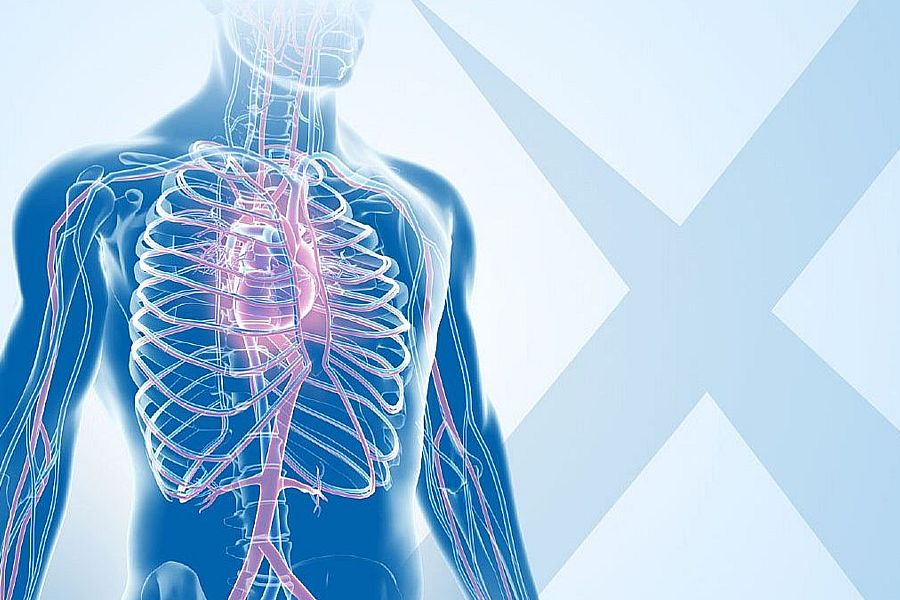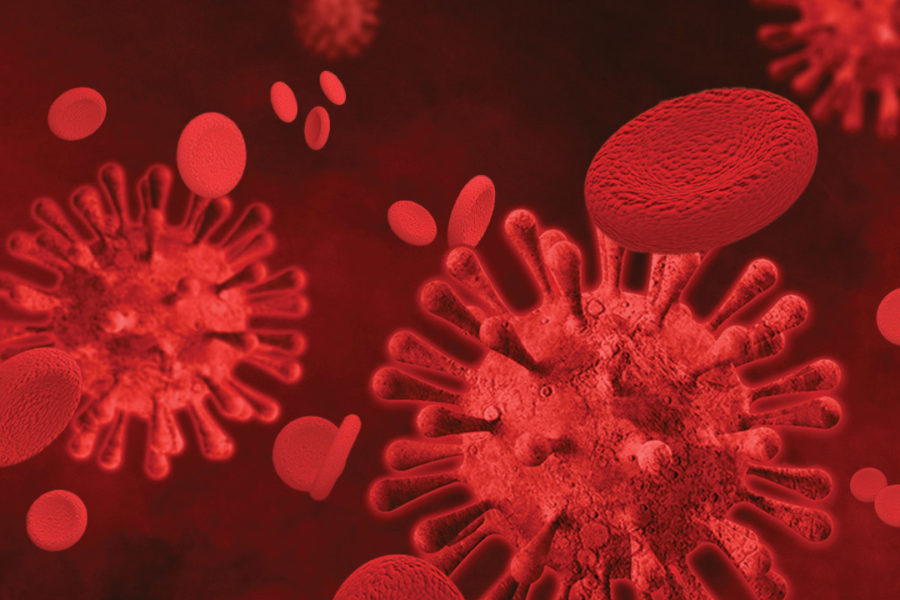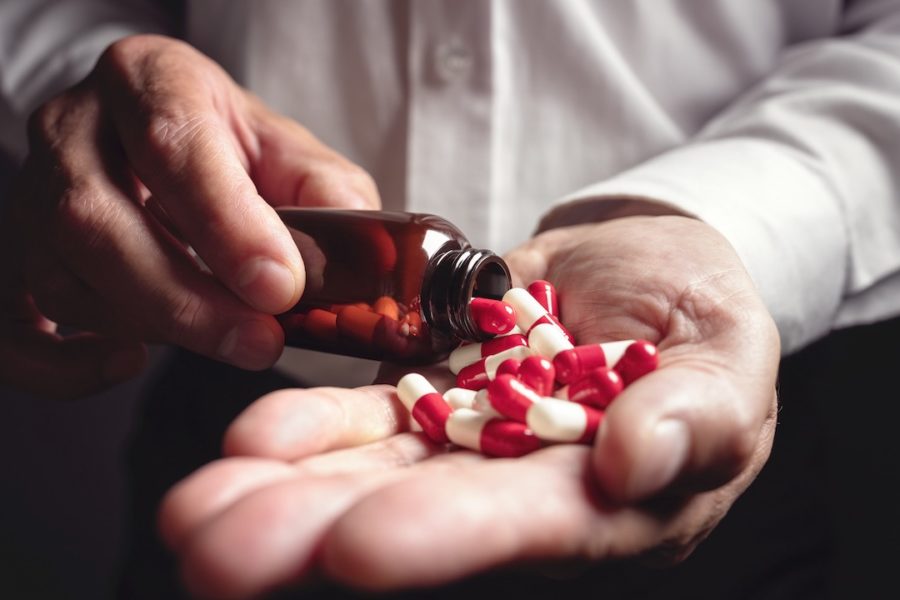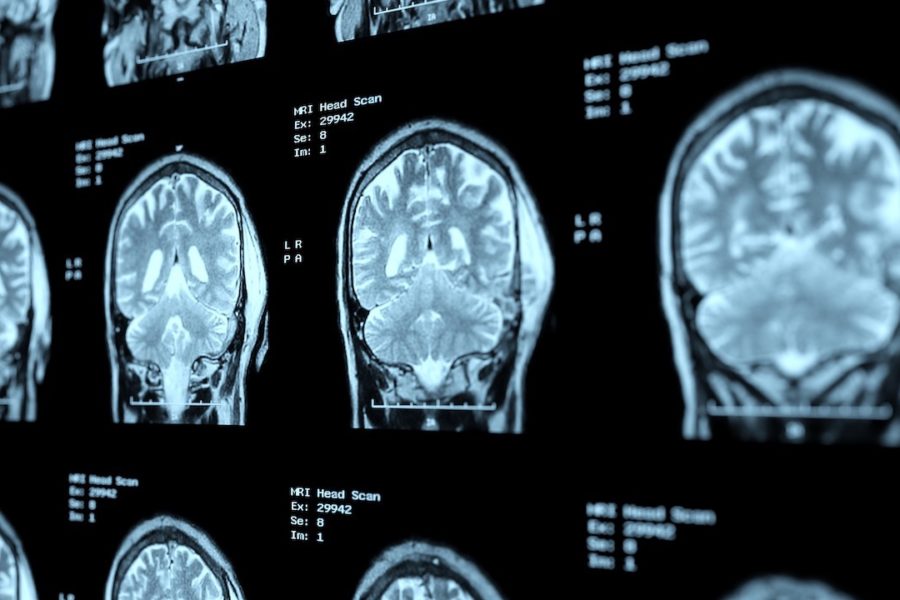How to Reduce Your Risk of Arterial Stiffness

Recently I came across several articles concerning new research on arterial stiffness. One of the latest appeared in the April issue of the American Journal of Hypertension, in which scientists named 27 new metabolites linked to arterial stiffness.(1) Why should you care about this or any other research on arterial stiffness? What is it? Let me explain.
Arterial stiffness is a risk factor for atherosclerosis (hardening of the arteries), which is usually one of the first things people mention when asked what can cause a heart attack. In fact, atherosclerosis is a leading cause of heart disease and stroke.(2)
Atherosclerosis is characterized by the buildup of plaque, which is composed of cholesterol, cellular waste, calcium, fibrin, and fatty substances. As plaque accumulates, the walls of the arteries thicken, which in turn constricts the channel and reduces blood flow. It’s one recipe for a heart attack and other cardiovascular events.
Yet arterial stiffness rivals high cholesterol as a risk factor for atherosclerosis (3,4), and that makes it an adversary well worth exploring and understanding. Arterial stiffness refers to an abnormal stiffening in the walls of large arteries that lead from the heart to major organs. One reason it deserves a lot of attention is that arterial stiffness involves more than just the formation of plaque in the arteries—it includes the loss of suppleness of the arteries, which in turn prevents these blood vessels from properly regulating blood pressure and blood flow.(3)
Stiffening of the arteries also damages the capillaries that provide nourishment to our organs, which can lead to organ damage. This damage can manifest not only as heart attack and stroke but dementia, kidney failure, and other disorders. (5,6)
Fortunately, there are simple lifestyle changes you can make to help slow and even prevent the loss of arterial flexibility. In this article, we will come to better understand arterial stiffness and examine how vitamin D and vitamin K (7-9) work in synch to reduce arterial stiffness and the life-threatening disorders associated with it.
Why arterial stiffness is dangerous
The walls of healthy arteries are composed of three layers: the innermost layer is the tunica intima, aka endothelium; the middle layer is the tunica media and it is usually the thickest; and the tunica adventitia, aka tunica externa. Arterial walls have an ability to constrict (narrow) and dilate (widen) in response to the demands of the tissues they supply.
Scientists have been studying the endothelium for many years and have learned that inflammation, blood glucose (sugar), and various signaling molecules can damage this layer and disrupt blood flow.(10) In the past few years, researchers have discovered that the tunica media also have an integral role in blood flow changes that can lead not only to cardiovascular disease and high blood pressure but other age-related problems as well.(9,11,12)
A review of the literature shows that arterial stiffness contributes to numerous serious health issues (13-17), including:
- High blood pressure. In fact, the primary immediate consequence of having arterial stiffness is a steady increase in blood pressure, which in turn damages the arterial walls and causes further stiffening (16,19,20)
- Stroke
- Heart attack
- Alzheimer’s disease and other forms of cognitive decline
- Parkinson’s disease
- Liver disorders, especially non-alcoholic fatty liver disease
- Kidney disorders, including end-stage renal disease
- Type 2 diabetes
- Cerebral white matter disease
What causes arterial stiffness?
The one cause of arterial stiffness over which you have no control is growing older. Considering the alternative, this is one cause you can learn to live with. Another cause of arterial stiffness is type 2 diabetes, which is associated with high blood pressure and organ damage. (19,21-23)
Yet one more factor that contributes to arterial stiffening is the deposit of calcium from the blood into arterial walls. Known as calcification, this activity literally results in hardening of the arteries.(11,24)
Remember the new study I mentioned at the beginning of this article concerning the 27 metabolites? A research team at the University of Georgia “identified many metabolites related to coffee drinking, alcohol drinking, Southern foods, dietary supplements and even pesticides” and tested how they affected arterial stiffness. (25) I’m sure we’ll hear more about these metabolites in the future. In the meantime, gaining a better understanding of how our lifestyle choices impact the stiffening of our arteries can help us better prevent it from occurring.
Can you prevent arterial stiffness?
Because calcification is a key contributor to arterial stiffness, a major way to help prevent its occurrence is to take supplements that help keep calcium out of your arteries. Two vitamins that have been shown to help achieve this goal are vitamins D and K.
In a number of studies conducted in humans, both vitamins D and K have slowed calcification of the arteries and maintained suppleness of these blood vessels.
What you should know about calcium
If you want to help prevent calcification of your arteries and arterial stiffness, then you need both vitamins D and K to manage rein in calcium. Although vitamin D has typically been dubbed a partner with calcium to support bone health and vitamin K wears the blood clotting crown, both of these vitamins also have a critical role in managing calcium.
Vitamin D, for example, promotes the deposit of calcium in bones and its absorption from the diet. Both of these functions support bone health.
Vitamin K, on the other hand, plays keep-away: it helps keep calcium out of your artery walls by making them resistant to this mineral. The result is less arterial calcification and stiffening. (26) Another function of vitamin K is to assist calcium in entering bone, which also supports bone health and helps prevent osteoporosis.(26)
Therefore, there is an intimate working relationship between calcium, vitamin D, and vitamin K when it comes to keeping your arteries clear and supple and in preventing arterial stiffening.
How vitamin D contributes to arterial suppleness
Several recent studies have suggested that vitamin D insufficiency can speed up development of cardiovascular disease and may contribute to arterial stiffening.(27-29) Similarly, low vitamin D levels have been linked to hypertension, which is a key sign of stiff arteries.(30-31)
Add to this scenario the fact that vitamin D deficiency is common, and you have a fertile setting for arterial stiffness and its consequences.
Several studies have shown that taking vitamin D supplements is an important step in the prevention or reduction of cardiovascular disease. High-risk individuals who can especially benefit from these supplements are those with a vitamin D deficiency, older adults, diabetics, and people who don’t get enough exposure to sunlight. (32,33) Let’s look at the findings of three of these studies.
Clinical trials of vitamin D and arterial stiffness
One of the trials involved middle-aged individuals with type 2 diabetes. The participants took either a placebo or 1,000 International Units (IUs) of vitamin D daily. After one year, the participants who had taken the supplement showed a decrease in arterial stiffness, a measure known as the central aortic augmentation index. Individuals in the placebo group did not show an improvement.(33)
In another study, adults with high blood pressure who also were vitamin D deficient were assigned to take either 4,000 IU or 400 IU of vitamin D3 daily for six months. At the end of the study, participants in the high dose group showed a 12.3 percent reduction in arterial stiffness, but there were no changes in the control group.(31)
In yet another study, investigators gave 3,000 IU of vitamin D3 to adults who were vitamin D insufficient during the winter months. Use of the supplement resulted in a reduction in blood pressure. (30) Subsequent studies also have demonstrated that use of vitamin D can help reduce arterial stiffness in both high-risk and healthy individuals.(27,29,34)
Vitamin K and arterial stiffness
We need vitamin K to kick-start a biomolecule called matrix Gla-protein, which helps stop calcium from attaching itself to artery walls.(24,26,35,36) If you don’t get enough vitamin K in your diet or through supplementation, the matrix Gla-protein won’t become activated. The result: calcification and arterial stiffness.
How is your vitamin K intake? If you eat a lot of processed foods, chances are your vitamin K levels are pretty low. Studies show that people who are vitamin K insufficient have elevated indicators of arterial stiffness. (37)
Fortunately, animal and human studies have shown that taking vitamin K supplements can help prevent or reduce arterial stiffness.
Understanding Vitamin K
Vitamin K is available in three forms. Here’s what you should know about them.
Vitamin K1. This is the form of the vitamin found in plants. Also known as phylloquinone, some of it transforms into vitamin K2 in the body. (39) We have evidence that ingesting vitamin K1 can reduce the risk of disease.(40-44)
Vitamin K2 (MK-4). This form of vitamin K is found in animal foods; meat, eggs, and dairy products. MK-4 is rapidly absorbed and metabolized by the body and has been studied for its role in bone health.(45-49)
Vitamin K2 (MK-7). Several fermented foods (soybeans, cheeses) are sources of this form of vitamin K. The most important thing to remember about MK-7 is that it remains active in the body for more than 24 hours. This is important if you want to protect against calcification. If there’s no vitamin K2 around, matrix Gla-proteins quickly become inactive and thus ineffective.
If you choose to take a vitamin K supplement, one that contains all three forms of the nutrient is recommended.
What are the benefits of vitamin K?
Numerous studies have demonstrated the benefits of vitamin K when it comes to arterial stiffness. For example:
The value of vitamin MK-7 supplements were shown in a recent human randomized controlled clinical trial. A total of 244 healthy, postmenopausal women were given either a placebo or vitamin K2 (MK-7) daily for three years.
By the end of the trial, the women who had taken vitamin K2 showed a 50 percent reduction in inactive matrix Gla-protein. This was an indication of the protective effect of the nutrient on cardiovascular health.(38)
Overall, use of vitamin MK-7 resulted in a significant reduction in arterial stiffness. In addition, the women who had the highest arterial stiffness at the beginning of the study experienced significant improvements in other health factors related to arterial suppleness.
In a more recent study, researchers evaluated the effect of vitamin MK-7 on arteria stiffness in renal transplant patients. Vitamin K deficiency is common among this patient population and is associated with an increased risk of cardiovascular disease. The authors found that use of MK-7 for eight weeks was associated with an improvement in vitamin K deficiency and arterial stiffness.
How does arterial stiffness speed up aging?
Among healthy young people, the large arteries that run from the heart to the major organs remain open and supple, while the smaller arteries are stiffer. This difference in stiffness is important because it helps dampen the large pressure waves that are produced every time the heart beats.
The result is a smoother flow of blood and protection for the tiny fragile blood vessels—capillaries—against damage that can be caused by high pressure. The protected capillaries can then better nourish the tissues they serve.
As we get older, however, the larger arteries begin to stiffen as a result of years of exposure to inflammation, blood glucose, and other factors. As the larger arteries stiffen, the pressure dampening effect weakens and places pressure on the capillaries. (17,51,52)
At the same time, the increasing arterial stiffness results in higher blood pressure, which then causes more stiffening. The vicious cycle of aging, high blood pressure, and arterial stiffening is now in full swing. Once the capillaries are unable to function normally, the organs they nourished become damaged. That’s when we see heart attack, dementia, stroke, kidney and liver disease, and more.
Summary
Here are your take-home messages:
- Arterial stiffening occurs when your arteries lose their suppleness, resulting in narrowed arteries, poor blood pressure and blood flow control, and damage to the capillaries that nourish your organs.
- One major contributor to arterial stiffness is calcification in the arteries.
- Both vitamin D and vitamin K play critical roles in how your body manages calcium, and human clinical trials have demonstrated their importance.
- It is essential for adults to get sufficient amounts of both vitamins to help prevent arterial stiffening and the serious health conditions that can result.
References
1. Li C et al. Novel metabolites are associated with augmentation index and pulse wave velocity: findings from the Bogalusa Heart Study. American Journal of Hypertension 2019 Jun; 32(6): 547-56
2. National Heart, Lung and Blood Institute. Atherosclerosis
3. Palombo C, Kozakova M. Arterial stiffness, atherosclerosis and cardiovascular risk: Pathophysiologic mechanisms and emerging clinical indications. Vascular Pharmacology 2016; 77:1-7
4. van Popele NM et al. Association between arterial stiffness and atherosclerosis: the Rotterdam Study. Stroke 2001; 32(2):454-60.
5. Thorin-Trescases N, Thorin E. Lifelong cyclic mechanical strain promotes large elastic artery stiffening: increased pulse pressure and old age-related organ failure. Canadian Journal of Cardiology 2016; 32(5): 624-33
6. Safar ME et al. Pulse pressure, arterial stiffness, and end-organ damage. Current Hypertension Reports 2012 Aug; 14(4): 339-44
7. Levin A et al. Randomized controlled trial for the effect of vitamin D supplementation on vascular stiffness in CKD. Clinical Journal of the American Society of Nephrology 2017; 12(9):1447-60.
8. Mayer O, Jr. et al. Synergistic effect of low K and D vitamin status on arterial stiffness in a general population. Journal of Nutrition and Biochemistry 2017; 46:83-89
9. Mozos I et al. Crosstalk between vitamins A, B12, D, K, C, and E status and arterial stiffness. Disease Markers 2017; 2017:8784971
10. Mozos I, Luca CT. Crosstalk between oxidative and nitrosative stress and arterial stiffness. Current Vascular Pharmacology 2017; 15(5): 446-56.
11. Cecelja M, Chowienczyk P. Molecular mechanisms of arterial stiffening. Pulse (Basel) 2016; 4(1):43-8.
12. Cho JY, Kim KH. Evaluation of arterial stiffness by echocardiography: methodological aspects. Chonnam Medical Journal 2016; 52(2):101-6.
13. Cardoso CR, Salles GF. Aortic stiffness as a surrogate endpoint to micro- and macrovascular complications in patients with type 2 diabetes. International Journal of Molecular Science 2016; 17(12).
14. Villela-Nogueira CA et al. NAFLD and increased aortic stiffness: Parallel or common physiopathological mechanisms? International Journal of Molecular Sciences 2016; 17(4).
15. Wang M et al. Metabolic, inflammatory, and microvascular determinants of white matter disease and cognitive decline. American Journal of Neurodegenerative Disease 2016; 5(5):171-7.
16. Cheng HM et al. Vascular aging and hypertension: Implications for the clinical application of central blood pressure. International Journal of Cardiology 2017; 230:209-13.
17. Joly L. Arterial stiffness and cognitive function. Geriatric Psychology Neuropsychiatr Vieil. 2017; 15(1):83-8.
18. Fortier C, Agharazii M. Arterial stiffness gradient. Pulse (Basel). 2016; 3(3-4):159-66.
19. Gavish B, Izzo JL, Jr. Arterial stiffness: Going a step beyond. American Journal of Hypertension 2016.
20. Prasad K, Mishra M. Do advanced glycation end products and its receptor play a role in pathophysiology of hypertension? International Journal of Angiology 2017; 26(1):1-11.
21. Shirwany NA, Zou MH. Arterial stiffness: a brief review. Acta Pharmacol Sin. 2010; 31(10):1267-76.
22. Prenner SB, Chirinos JA. Arterial stiffness in diabetes mellitus. Atherosclerosis 2015; 238(2):370-9.
23. Zieman SJ et al. Mechanisms, pathophysiology, and therapy of arterial stiffness. Arteriosclerosis, Thrombosis and Vascular Biology 2005; 25(5):932-43.
24. Doyon M et al. Decreased expression of gamma-carboxylase in diabetes-associated arterial stiffness: impact on matrix Gla protein. Cardiovascular Research 2013; 97(2):331-8.
25. Slachta A. UGA researchers find 27 new metabolites tied to arterial stiffness. Cardiovascular Business 2019 May 8
26. Maresz K. Proper calcium use: Vitamin K2 as a promoter of bone and cardiovascular health. Integrated Medicine (Encinitas). 2015; 14(1):34-39.
27. Al-Dujaili EA et al. Effect of vitamin D supplementation on cardiovascular disease risk factors and exercise performance in healthy participants: a randomized placebo-controlled preliminary study. Therapeutic Advances in Endocrinology and Metabolism 2016; 7(4):153-65
28. Rodriguez AJ et al. Effect of vitamin D supplementation on measures of arterial stiffness: a systematic review and meta-analysis of randomized controlled trials. Clinical Endocrinology (Oxf). 2016; 84(5):645-57.
29. Sunbul M et al. Arterial stiffness parameters associated with vitamin D deficiency and supplementation in patients with normal cardiac functions. Turk Kardiyol Dern Ars. 2016; 44(4):281-8.
30. Larsen T et al. Effect of cholecalciferol supplementation during winter months in patients with hypertension: a randomized, placebo-controlled trial. American Journal of Hypertension 2012; 25(11):1215-22.
31. Zaleski A et al. High-dose versus low-dose vitamin D supplementation and arterial stiffness among individuals with prehypertension and vitamin D deficiency. Disease Markers 2015; 2015:918968.
32. McGreevy C et al. The effect of vitamin D supplementation on arterial stiffness in an elderly community-based population. Journal of the American Society of Hypertension 2015; 9(3):176-83
33. Breslavsky A et al. Effect of high doses of vitamin D on arterial properties, adiponectin, leptin and glucose homeostasis in type 2 diabetic patients. Clinical Nutrition 2013; 32(6):970-75
34. Forouhi NG et al. Effects of vitamin D2 or D3 supplementation on glycaemic control and cardiometabolic risk among people at risk of type 2 diabetes: results of a randomized double-blind placebo-controlled trial. Diabetes Obesity & Metabolism 2016; 18(4):392-400.
35. Pivin E et al. Inactive matrix Gla-protein is associated with arterial stiffness in an adult population-based study. Hypertension 2015; 66(1):85-92
36. Sardana M et al. Inactive matrix Gla-protein and arterial stiffness in type 2 diabetes mellitus. American Journal of Hypertension 2017; 30(2):196-201.
37. Vaccaro JA, Huffman FG. Phylloquinone (vitamin K(1)) intake and pulse pressure as a measure of arterial stiffness in older adults. Journal of Nutrition, Gerontology and Geriatrics 2013; 32(3):244-57
38. Knapen MH et al. Menaquinone-7 supplementation improves arterial stiffness in healthy postmenopausal women. A double-blind randomised clinical trial. Thromb Haemost. 2015; 113(5):1135-44
39. Booth SL. Vitamin K: food composition and dietary intakes. Food Nutrition Research 2012; 56
40. Villines TC et al. Vitamin K1 intake and coronary calcification. Coronary Artery Disease 2005; 16(3):199-203
41. Poli D et al. Safety and effectiveness of low dose oral vitamin K1 administration in asymptomatic out-patients on warfarin or acenocoumarol with excessive anticoagulation. Haematologica 2003; 88(2):23 7-8
42. Shetty HG et al. Effective reversal of warfarin-induced excessive anticoagulation with low dose vitamin K1. Thromb Haemost. 1992; 67(1):13-5
43. Bolton-Smith C et al. Two-year randomized controlled trial of vitamin K1 (phylloquinone) and vitamin D3 plus calcium on the bone health of older women. Journal of Bone Mineral Research 2007; 22(4):509-19
44. Okano T et al. Conversion of phylloquinone (Vitamin K1) into menaquinone-4 (Vitamin K2) in mice: two possible routes for menaquinone-4 accumulation in cerebra of mice. Journal of Biological Chemistry 2008; 283(17):11270-9
45. Komai M, Shirakawa H. Vitamin K metabolism. Menaquinone-4 (MK-4) formation from ingested VK analogues and its potent relation to bone function. Clinical Calcium 2007; 17(11): 1663-72
46. Miki T et al. Vitamin K(2) (menaquinone 4) reduces serum undercarboxylated osteocalcin level as early as 2 weeks in elderly women with established osteoporosis. Journal of Bone Mineral Metabolism 2003; 21(3):161-5
47. Kawashima H et al. Effects of vitamin K2 (menatetrenone) on atherosclerosis and blood coagulation in hypercholesterolemic rabbits. Japanese Journal of Pharmacology 1997; 75(2):135-43
48. Shearer MJ, Newman P. Metabolism and cell biology of vitamin K. Thrombosis and Haemost 2008; 100(4):530-47
49. Suhara Y et al. Comparative uptake, metabolism, and utilization of menaquinone-4 and phylloquinone in human cultured cell lines. Bioorganic and Medicinal Chemistry 2006; 14(19):6601-7
50. Mansour AG et al. Vitamin K2 supplementation and arterial stiffness among renal transplant recipients—a single-arm, single-center clinical trial. Journal of the American Society of Hypertension 2017 Sep; 11(9): 589-97
51. Harvey A et al. Vascular fibrosis in aging and hypertension: Molecular mechanisms and clinical implications. Canadian Journal of Cardiology 2016; 32(5):659-68.
52. Saji N et al. Cerebral small vessel disease and arterial stiffness: tsunami effect in the brain? Pulse (Basel). 2016; 3(3-4):182-89.


